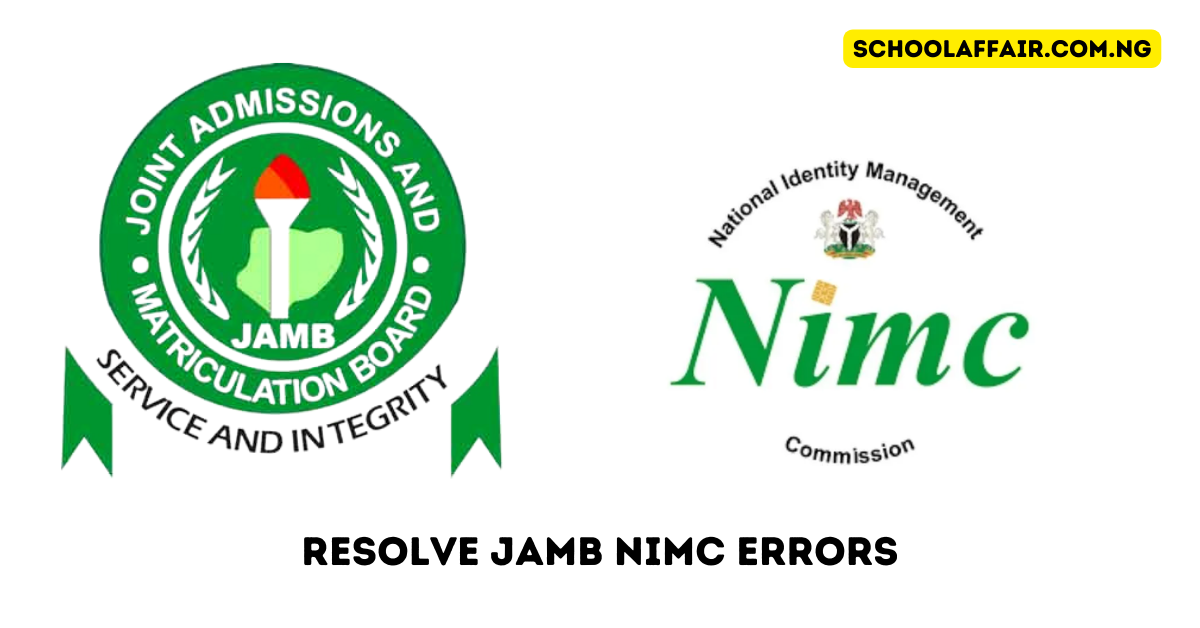2024 Post-UTME screening is a process that most Nigerian universities use to select candidates for admission. It is a mandatory test that students must take after they have passed the Joint Admissions and Matriculation Board (JAMB) examination. The screening is conducted to ensure that only the best candidates are admitted to the university.
post UTME screening process is designed to test the academic ability and potential of candidates. It is a way for universities to assess the knowledge and skills of prospective students and determine their suitability for admission. The screening usually consists of multiple-choice questions in subjects such as English, mathematics, and general knowledge. The scores obtained by candidates are then used to rank them and determine who gets admitted to the university.
The post-UTME screening process has been a subject of controversy in recent years. Some have argued that it is an unnecessary burden on students and that it does not accurately measure their academic ability. Others have argued that it is a necessary step to ensure that only the best candidates are admitted to the university. Regardless of the controversy, the post-UTME screening process remains an important part of the university admission process in Nigeria.
Overview of Post-UTME Screening
Post-UTME screening is a process that Nigerian universities and other tertiary institutions use to select candidates for admission. It is a standardized test that is designed to assess the academic abilities of candidates who have already taken the UTME (Unified Tertiary Matriculation Examination).
The screening process typically involves a combination of written tests and oral interviews. The written tests are usually multiple-choice questions that cover a range of subjects, including English language, mathematics, and general knowledge. The oral interviews are conducted to assess the communication skills and personalities of the candidates.
The purpose of the post-UTME screening is to ensure that only the most qualified candidates are admitted to the university. It is intended to complement the UTME, which is a general aptitude test that assesses the basic knowledge and skills of candidates.
Overall, post UTME screening is an important part of the admission process for Nigerian universities and other tertiary institutions. It provides a more comprehensive assessment of the academic abilities and personal qualities of candidates, which helps to ensure that only the most qualified candidates are admitted.
Eligibility Criteria
Minimum academic requirements
To be eligible for post-UTME screening, candidates must have a minimum of five (5) credits at the O’level, including mathematics and English language. These credits must be obtained in no more than two sittings. Candidates who do not meet this requirement will not be considered for admission.
In addition, candidates must have sat for the Unified Tertiary Matriculation Examination (UTME) and scored a minimum of 180. However, some universities may have a higher cut-off mark, so it is important for candidates to check the specific requirements of the institution they are applying to.
Age Limitations
There is no age limit for post-UTME screening. However, candidates must have completed secondary school education and obtained their O’level results before applying for admission.
Nationality and residency requirements
Post-UTME screening is open to all candidates, irrespective of their nationality or state of origin. However, candidates must be Nigerian citizens or have obtained a Nigerian citizenship certificate. Candidates who are not Nigerian citizens must provide evidence of their residency status in Nigeria.
It is important for candidates to note that each institution may have specific requirements regarding nationality and residency, so they should check the admission guidelines of the institution they are applying to.
Application Process
Registration Procedures
To apply for post-UTME screening, candidates are required to visit the official website of the institution they wish to apply to. Upon accessing the website, they will be required to create an account, fill in their personal and academic details, and pay the stipulated application fee. It is important to note that candidates should only apply to institutions that they have chosen as their first or second choice during their UTME registration.
Required Documents
Candidates are required to upload certain documents during the application process. These documents include their O’level results, UTME result slip, birth certificate, and passport photograph. It is important to ensure that all documents are scanned and uploaded in the required format and size to avoid any complications during the screening process.
Submission Deadlines
Candidates are advised to carefully note the submission deadlines for their chosen institutions. Late submissions are not usually accepted and can lead to disqualification from the screening process. It is also important to note that candidates should print out their application forms and keep them safe, as they will be required during the screening exercise.
In summary, the application process for post-UTME screening involves creating an account on the institution’s website, filling in personal and academic details, uploading required documents, and paying the stipulated application fee. Candidates should ensure that they apply to institutions they have chosen as their first or second choice during their UTME registration and submit all required documents before the stipulated deadline.
Screening Formats
Post-UTME screening is conducted by tertiary institutions in Nigeria to assess the academic readiness of prospective students for admission into their various programs. The screening process is usually conducted in different formats, including written examinations, oral interviews, and practical assessments.
Written Examinations
Written examinations are the most common format used in the post-UTME screening process. This format typically involves a set of multiple-choice questions, essay questions, or a combination of both. The questions are designed to test the candidate’s knowledge in different subject areas, including mathematics, English language, and the relevant subjects for their chosen program.
To prepare for the written examination, candidates are advised to study past questions and revise thoroughly. They should also ensure that they are well-rested and mentally prepared on the day of the examination.
Oral Interviews
Oral interviews are another format used in the post-UTME screening process. This format involves a face-to-face conversation between the candidate and the interview panel. The interview panel usually consists of lecturers or professors from the relevant department.
The purpose of the oral interview is to assess the candidate’s communication skills, critical thinking, and ability to articulate their thoughts clearly. Candidates are advised to dress appropriately and be confident during the interview.
Practical Assessments
Practical assessments are used in some institutions as a format for post-UTME screening. This format involves a hands-on assessment of the candidate’s skills and abilities in a specific field. For instance, candidates seeking admission into programs such as engineering, medicine, or agriculture may be required to undergo practical assessments.
To prepare for practical assessments, candidates should ensure that they have the necessary skills and knowledge required for the assessment. They should also be familiar with the equipment and tools that will be used during the assessment.
In conclusion, the post-UTME screening process is an essential step in the admission process for tertiary institutions in Nigeria. Candidates are advised to prepare adequately for the screening process to increase their chances of admission.
Preparation Strategies
Preparing for post-UTME screening exams can be a daunting task, but with the right strategies, candidates can increase their chances of success. Here are a few preparation strategies that can help candidates ace their post-UTME exams.
Study guides and resources
One of the most effective ways to prepare for post-UTME exams is to make use of study guides and resources. These resources can include textbooks, past questions, and online resources. Candidates can also attend tutorials or enroll in preparatory classes to get additional guidance.
Time management tips
Effective time management is crucial when preparing for post-UTME exams. Candidates should create a study schedule that allows them to cover all the necessary topics. They should also prioritize their study time, focusing on the areas where they need the most improvement. Taking breaks and getting enough rest is also important to avoid burnout.
Mock Examinations
Mock examinations are a great way to simulate the actual post-UTME exam experience. Candidates can use these exams to identify areas where they need improvement and to get a feel for the exam format and timing. Mock exams can also help candidates build confidence and reduce anxiety.
By following these preparation strategies, candidates can increase their chances of success in post-UTME screening exams. It is important to note that these strategies should be tailored to individual needs and preferences. Candidates should also ensure that they are well-rested and mentally prepared on the day of the exam.
Criteria
Scoring System
The scoring system for post-UTME screening varies across institutions. Generally, the screening test consists of questions about the subjects relevant to the course of study. The number of questions and the time allotted for the test may also differ. Each question is usually assigned a certain number of marks, and the total score is calculated by adding up the marks obtained in all the questions.
Some institutions may also award marks for other factors, such as the candidate’s O’level grades, JAMB scores, and other relevant achievements. The weight assigned to each factor may vary depending on the institution’s policy.
Merit List Compilation
After the screening test, the merit list is compiled based on the total score obtained by each candidate. The candidate with the highest score is ranked first, and the rest are ranked in descending order of their scores. In case of a tie, the candidate with the higher JAMB score is given preference.
The merit list is used to determine the candidates who will be offered admission. The number of candidates admitted depends on the available slots for the course and the institution’s admission policy.
In conclusion, the evaluation criteria for post-UTME screening may differ across institutions. However, the scoring system and merit list compilation are crucial factors in determining the candidates’ admission. It is essential for candidates to prepare adequately for the screening test to increase their chances of securing admission.
Post-Screening Procedures
Admission Offers
Once the post-UTME screening process is complete, the university will review the results and determine which applicants have met the admission requirements. Successful candidates will be offered admission to the university.
Admission offers are usually sent via email or posted on the university’s website. The offer letter will contain important information such as the program of study, the start date of the academic session, and the deadline for acceptance.
Acceptance and Enrollment
Candidates in Nigeria are required to accept an admission offer within a specified deadline, either online or by submitting a physical acceptance letter. After acceptance, they must complete the enrollment process, which includes paying fees, submitting documents, and registering for courses.
Failure to enroll within the deadline may result in forfeiting the admission offer and requiring reapplying in subsequent years. The post-UTME screening process is straightforward, and those who meet the admission requirements and pass it are offered admission to the university. Candidates must follow the admission process carefully and complete all necessary steps within the specified deadlines.
Post UTME 2023/2024: List of Schools Whose Forms Are Out
Post-UTME screening Frequently Asked Questions
What are the steps to register for the Post-UTME online?
To register for the post-UTME screening exercise, candidates are required to visit the official website of their chosen institution and follow the instructions provided. They will be required to provide their JAMB registration number, personal information, and other relevant details. After completing the registration process, candidates will be required to print out their registration slip.
When are the post-UTME exams scheduled to start for the 2023 session?
The dates for the post-UTME exams vary from institution to institution. Candidates are advised to check the official website of their chosen institution for the specific dates and times for the screening exercise.
How can one check their post-UTME results through the internet?
Candidates can check their post-UTME results by logging into the official website of their chosen institution using their registration number and password. The result will be displayed on the screen.
What is the closing date for post-UTME applications for the 2023–2024 academic year?
The closing date for post-UTME applications also varies from institution to institution. Candidates are advised to check the official website of their chosen institution for the specific deadline for the screening exercise.
Can you explain the difference between JAMB and post-UTME?
JAMB is a national examination body responsible for conducting the Unified Tertiary Matriculation Examination (UTME) for admission into Nigerian universities, polytechnics, and colleges of education. Post-UTME, on the other hand, is a screening exercise conducted by individual institutions to select candidates for admission.
How are the JAMB and post-UTME scores computed?
The JAMB score is computed based on the number of questions answered correctly by the candidate. The post-UTME score is computed based on the performance of the candidate in the screening exercise conducted by the institution. The scores are then added together to determine the candidate’s overall score for admission.
Common Mistakes During Post-UTME Screening
Post-UTME screening is a crucial step for students who wish to gain admission into tertiary institutions in Nigeria. However, many students make common mistakes during the screening process that can affect their chances of being admitted. Here are some of the most common mistakes:
Lack of preparation
Many students fail to prepare adequately for the screening exercise. They assume that since they have already written the UTME, they do not need to study for the post-UTME. This is a big mistake. The post-UTME is a different exam, and students need to prepare for it just as they did for the UTME.
Poor time management
During the screening exercise, time management is critical. Many students spend too much time on a single question, leaving little or no time for other questions. This can be detrimental to their overall score. Students need to learn how to manage their time effectively during the screening exercise.
Lack of Familiarity with the Exam Format
Some students are not familiar with the format of the post-UTME exam. They do not know what to expect, and this can lead to anxiety and panic during the exam. It is essential to familiarize oneself with the exam format before the screening exercise.
Incomplete Registration
Some students fail to complete their registration before the screening exercise. This can lead to disqualification from the screening exercise. Students need to ensure that they complete their registration before the screening exercise.
In conclusion, students need to prepare adequately for the post-UTME screening exercise, manage their time effectively, familiarize themselves with the exam format, and ensure they complete their registration before the screening exercise. By avoiding these common mistakes, students can increase their chances of being admitted into their desired tertiary institutions.



